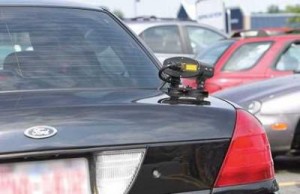The father of a victim who was struck and killed by a man who was driving on a suspended license is hoping to toughen laws and enforcement mechanisms to keep dangerous drivers off the road.
Marc Cremer testified before the Massachusetts legislature’s Joint Judiciary Committee on Bill H.4098, which would increase the maximum sentence for vehicular homicide while driving on a suspended license to 15 years in prison for chronic offenders of driving on a suspended license.
The law would not impact cases where a license suspension was initiated by parking tickets, civil violations, or RMV issues, it would apply only in cases of suspension after a criminal offense.
On June 15th, 2014 Jeffrey Bickoff hit Haley Cremer, 20 of Sharon, who was jogging, and was killed in the accident. Bickoff had an extensive record of driving infractions including 10 at fault accidents, 10 speeding tickets, and several suspensions, was charged with vehicular homicide and operating on a suspended driver’s license.
News reports suggest that Bickoff had also had several alcoholic drinks before driving, but passed the field sobriety tests given to him, and was therefore not charged with Operation Under the Influence. Bickoff was sentenced to 2 1/2 years in prison for the homicide.
Marc Cremer previously appealed to state lawmakers before the transportation committee to pass a bill that would alert local police to unlicensed drivers. That measure requires the Registry to notify local police departments when a resident’s license is suspension. It instructs police departments to read the names of residents with suspended driver’s licenses at police roll call.
State Representative Louis Kafka of Stoughton hopes to lead the charge to get this passed, as well as other possible drunk driving penalties in the next session.
Will Additional Police Driver’s License Awareness Make a Difference?
It’s difficult to say how much help this is to police officers, or how much they are able to pay attention to looking for these residents while out on patrol.
 A technological solution involving feeding these drivers and the vehicles they own into an Automatic License Plate Reader (ALPR) alert systems probably makes sense for towns that use these systems. License plate readers are cameras attached to on-board computers inside police cruisers that automatically scan plate numbers and cross check them with a list of plates that have been flagged in the database.
A technological solution involving feeding these drivers and the vehicles they own into an Automatic License Plate Reader (ALPR) alert systems probably makes sense for towns that use these systems. License plate readers are cameras attached to on-board computers inside police cruisers that automatically scan plate numbers and cross check them with a list of plates that have been flagged in the database.
I’ve got real problems with how these systems are deployed, and how the data of innocent people can be captured, mined, and abused by these systems, and so does the ACLU. But for these types of cases, it seems like a reasonable use.
The future of avoiding deadly human error behind the wheel may like with driverless cars, but that is still a few years away.
